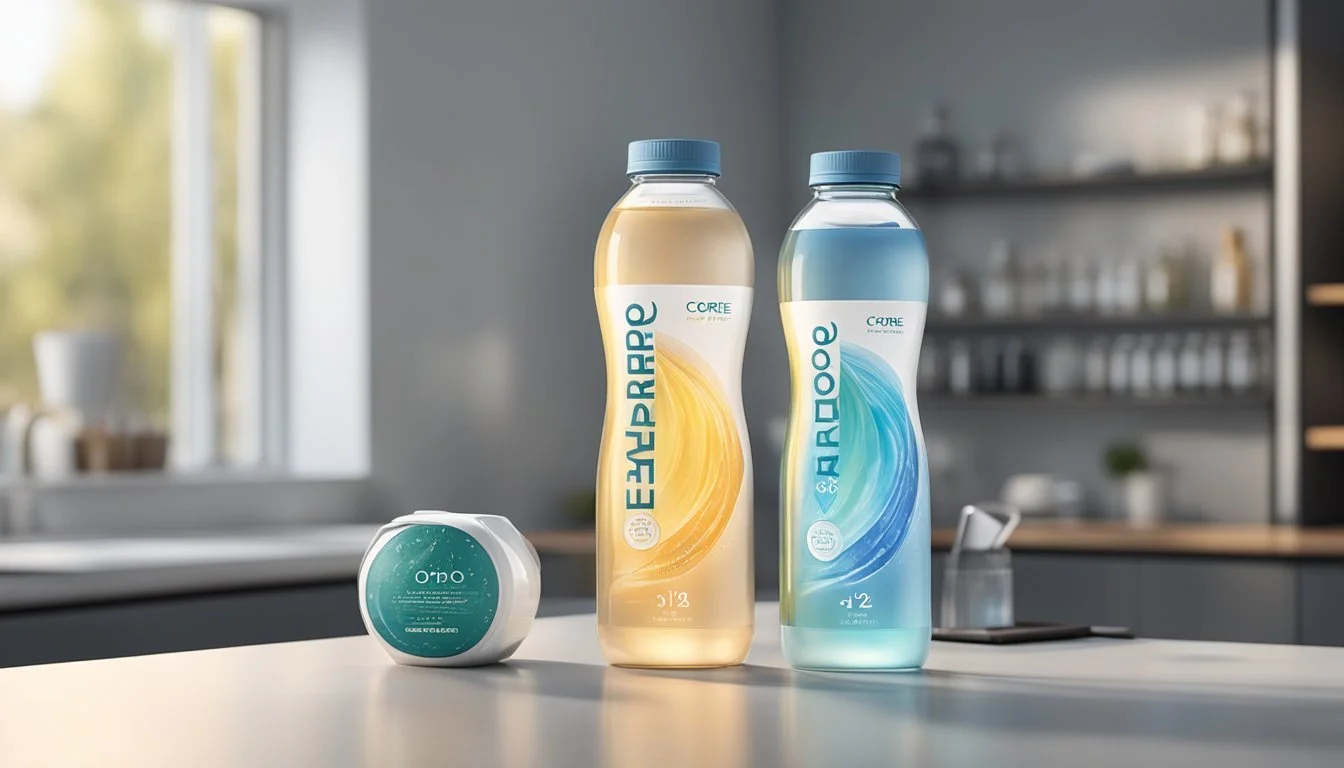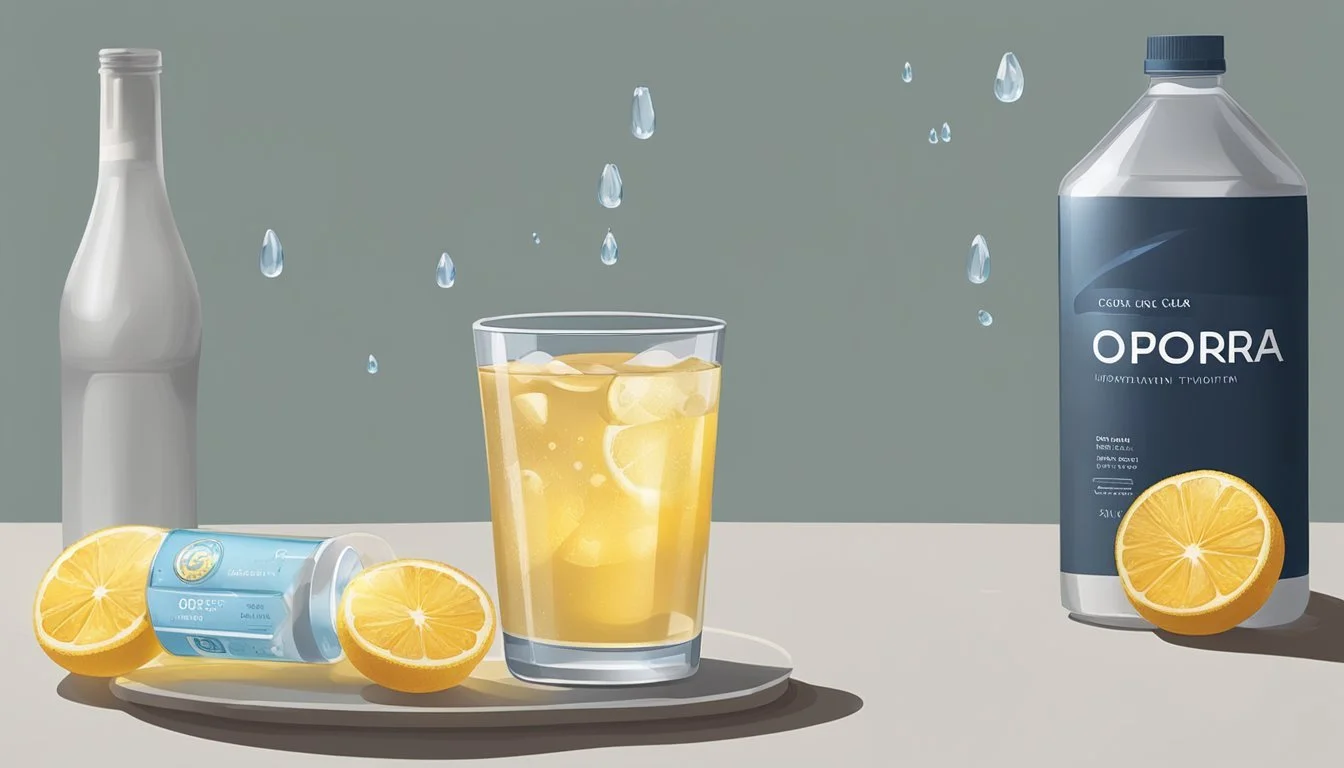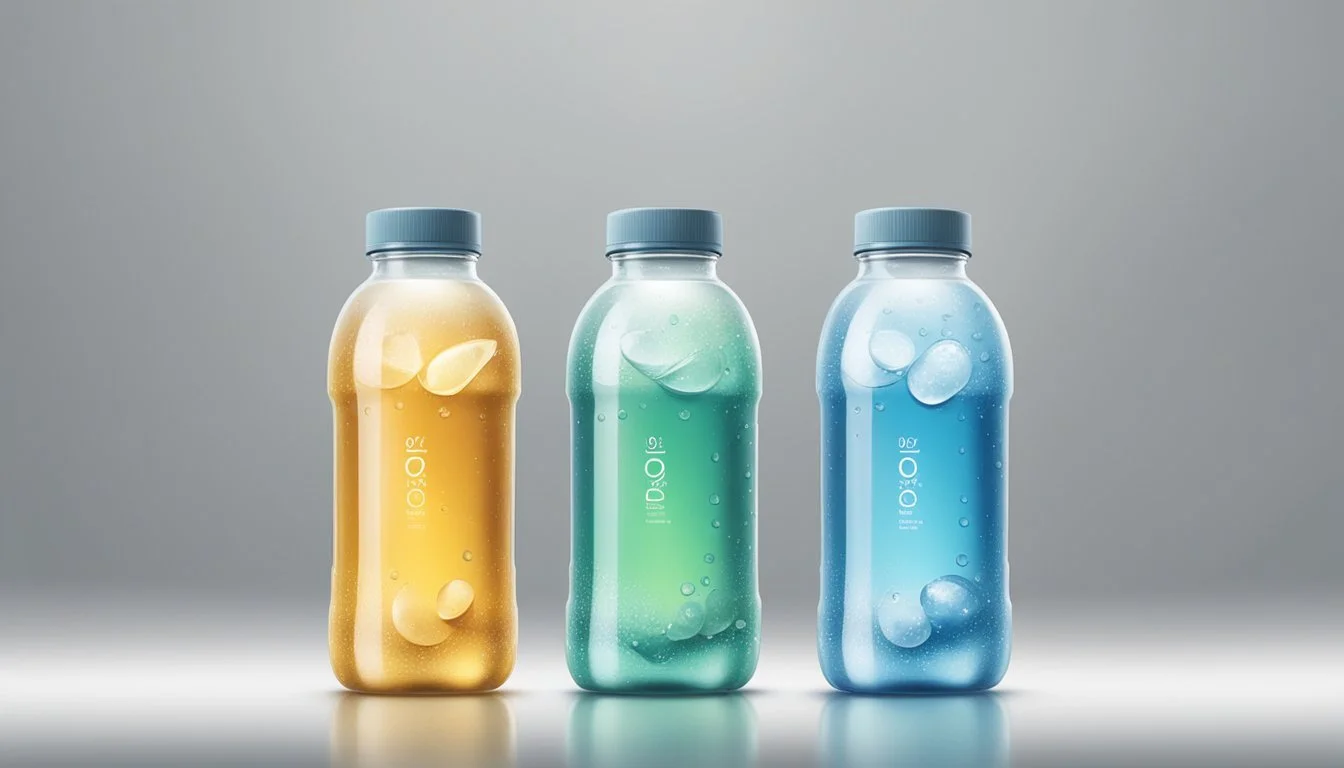Core Hydration vs. Ophora
The Ultimate Bottled Water Showdown
Choosing the right bottled water can significantly impact your hydration routine. Core Hydration and Ophora are two premium brands that offer distinct features to their consumers. Core Hydration sets itself apart with its unique selling point of being ultra-purified and containing electrolytes and minerals for a balanced taste. This makes it a popular choice for those seeking a smooth, refreshing drink that aligns with the human body's natural pH.
Ophora takes a different approach by focusing on oxygen-rich water, aiming to enhance hydration more effectively. They emphasize their advanced purification process which includes micro-filtration and ozonation, creating a product that some believe offers superior benefits compared to standard bottled water. Adopting either of these high-quality waters can ensure you're receiving not just hydration, but potential health benefits as well.
For consumers deciding between the two, it's about weighing the benefits of Core Hydration’s balanced minerals and electrolytes against Ophora’s enhanced oxygen levels and advanced purification methods. With each providing unique advantages, the choice ultimately comes down to personal preference and specific hydration needs.
Understanding Bottled Water
Bottled water comes in various types, each with unique properties and characteristics. It is sourced and processed differently to meet standards of purity, taste, and health benefits.
Types of Bottled Water
There are several types of bottled water available. Spring water is derived from natural springs and is rich in minerals. Mineral water contains minerals that are naturally present or added. Purified water undergoes treatments like reverse osmosis to remove impurities. Distilled water is boiled and recondensed to ensure it is free of contaminants but also lacks minerals. Alkaline water has a higher pH level, often achieved through ionization, and is believed to neutralize acid in the body.
Water Source and Natural pH Level
The source of bottled water significantly affects its quality. Spring water and mineral water are prized for their natural origins and mineral content. The natural pH of these waters varies but typically remains in a range that complements the body’s pH balance. Tap water, which is also used in some bottled varieties, undergoes rigorous municipal testing. Alkaline water is specifically processed to achieve a higher pH, often around 8-9, while the natural pH of spring water and mineral water is usually closer to neutral, around 7.
Filtration and Purification Techniques
Different brands use various filtration and purification techniques to ensure their bottled water is of high quality. Reverse osmosis is widely used to remove contaminants through a semi-permeable membrane. Ultraviolet light is employed to disinfect the water, killing bacteria and viruses. Ozone exposure is another technique used for purification, leaving no chemical residues. Some brands also include ionization to produce alkaline water, which is believed to offer additional health benefits. The combination of these techniques helps in delivering clean, great-tasting water to consumers.
Health Implications of Hydration
Proper hydration is essential for maintaining the body's balance, providing essential minerals, and preventing potential health risks associated with both dehydration and overhydration.
Hydration and Body Balance
Hydration plays a critical role in maintaining body balance. Water helps regulate body temperature, supports nutrient transportation, and aids in waste elimination. The body's ability to maintain a pH balance hinges significantly on proper hydration.
An imbalance in hydration can lead to acidosis or alkalosis. Maintaining a pH close to 7.4 is crucial for muscle function and overall cellular activities. Both Core Hydration and Ophora claim to support the body's natural pH, with Core Hydration advocating for a neutral to slightly alkaline pH of 7.4.
Mineral Content and Health Benefits
Electrolytes such as potassium, magnesium, and calcium in bottled water are vital for muscle function and bone health. Core Hydration contains potassium bicarbonate, magnesium chloride, and calcium chloride, which contribute to both taste and health benefits. Though the specific amounts of these minerals aren't disclosed, they are intended to enhance hydration.
Electrolytes support various bodily functions. Potassium aids in nerve function, magnesium in muscle relaxation, and calcium in bone strength. Ophora's water is rich in oxygen and other essential minerals, which can enhance cellular respiration and overall vitality.
Potential Risks of Improper Hydration
Improper hydration can lead to several risks. Dehydration can cause symptoms like headaches, fatigue, and impaired mental function. Severe dehydration can result in heatstroke or kidney issues.
Overhydration, on the other hand, can lead to hyponatremia, where sodium levels in the blood become dangerously low. This can cause symptoms ranging from nausea to seizures. Both Core Hydration and Ophora emphasize careful consumption. Core Hydration's balanced pH helps in preventing acidosis, while Ophora's oxygen-rich formula supports cellular oxygen levels.
Comparative Analysis of Core Hydration and Ophora
Core Hydration and Ophora both market their bottled waters as premium, health-conscious options, but there are key differences in their pH levels, electrolyte content, bottle materials, and taste profiles.
pH Level and Alkalinity
Core Hydration claims to have a balanced pH around 7.4, which is in line with the body's natural pH level. This balanced pH is considered neutral to slightly alkaline. Ophora, on the other hand, focuses on providing water that is more alkaline, typically boasting a pH level of around 8.5 or higher.
An alkaline pH is believed to help neutralize acid in the bloodstream, which can promote better hydration and offer potential health benefits.
Electrolyte Infusion and Health Benefits
Core Hydration includes electrolytes like calcium, magnesium, and potassium to enhance taste and potentially aid in hydration. These added minerals can contribute to a smoother mouthfeel, often compared to brands like Essentia Water.
Ophora takes a more advanced approach by infusing their water with oxygen and other nutrients designed to aid cellular health and energy. The focus on oxygenation sets Ophora apart, potentially offering broader health benefits beyond simple hydration.
Bottles: Material and Environmental Impact
Core Hydration uses 100% recyclable plastic bottles that are also BPA-free. This design aims to minimize environmental impact while ensuring consumer safety. Their bottles are ergonomically designed for a comfortable grip, which can be a selling point for those on the go.
Ophora typically uses glass bottles, aligning with its premium and eco-conscious branding. Glass bottles are fully recyclable and free from any chemical leaching, offering a greener alternative to plastic.
Taste Profile Comparison
Core Hydration is praised for its smooth taste, attributed to the electrolytes infused in the water. Some reviewers note it has a sports-drink-like quality, making it distinct but pleasant for continuous consumption.
Ophora distinguishes itself with a crisp, clean taste. The oxygenation process may enhance this refreshing profile, making it appealing to those seeking a pure and invigorating water option.
By examining these factors, consumers can make an informed decision between Core Hydration and Ophora based on their personal preferences and values.
Commercial Aspects of Bottled Water
Examining the commercial aspects of bottled water involves understanding brand positioning and market presence, pricing strategies, and distribution channels. These factors are crucial for consumers deciding between Core Hydration and Ophora.
Brand Positioning and Market Presence
Core Hydration positions itself as a premium, health-focused brand, emphasizing its balanced pH and added electrolytes. Its marketing highlights the tailored design of its bottles, which are BPA-free and 100% recyclable.
Core's market presence is significant, often found in health and wellness stores. By contrast, Ophora targets eco-conscious consumers by promoting sustainable practices, including eco-friendly packaging. Their niche market presence is growing among environmentally aware demographics.
Water brands like Smartwater, Evian, and Fiji Water cater to similar premium segments, highlighting purity and unique sourcing locations. Core Hydration competes directly with these brands through its unique selling points related to health benefits and bottle design.
Pricing and Affordability
Pricing for bottled water varies significantly. Core Hydration is positioned as a mid-to-high-end product with prices reflective of its premium features. Retail prices often range from $1.50 to $3.00 per bottle, depending on the size and location.
Ophora's pricing is typically higher, reflecting its specialized micro-clustered water and oxygenated technology. This positions it as a luxury option, with prices sometimes exceeding $5.00 per bottle.
Brands like Dasani and Aquafina offer more affordable options, often priced below $1.00 per bottle, making them accessible to a broader audience. Core and Ophora's pricing strategies set them apart in the market, targeting consumers willing to pay a premium for perceived health benefits and sustainability.
Distribution Channels
Core Hydration leverages multiple distribution channels, including supermarkets, health food stores, and online platforms. This wide availability makes it accessible to a diverse range of consumers.
Ophora, focused on a niche market, primarily distributes through specialty health and wellness stores and direct online sales. Limited distribution can impact market penetration but also creates an exclusive feel for the brand.
Major brands like Poland Spring and Zephyrhills are commonly found in convenience stores, vending machines, and retail outlets, ensuring broad accessibility. Core's comprehensive distribution strategy maximizes reach, whereas Ophora's targeted approach caters to its specific consumer base.
Sustainability and Environmental Considerations
Examining the sustainability and environmental impact of bottled water brands like Core Hydration and Ophora involves understanding their packaging materials and efforts to reduce their carbon footprints.
Packaging Materials and Recycling
Core Hydration uses 100% recyclable BPA-free plastic bottles. This caters to consumers who prioritize health and environmental impact. The design of their bottles also includes ergonomic features for a comfortable grip, adding functionality to their eco-friendly packaging.
Ophora, recognized for its premium offerings, focuses on high-quality filtration systems. Though less discussed, their packaging methods include recyclable materials, although specific details about their approach to using plastics are limited. Emphasizing sustainability, both brands aim to minimize waste through recycling initiatives.
Reducing Carbon Footprint in Water Brands
Core Hydration highlights its commitment to reducing its carbon footprint by using recycled materials in its packaging. They source water from municipal sources and infuse it with electrolytes and minerals, ensuring efficient logistics and reducing environmental impact.
Ophora goes further by incorporating advanced water filtration technology, reducing the need for extensive transportation of bottled water. This approach significantly lowers their carbon emissions. Both companies demonstrate efforts to balance product quality with sustainable practices, offering choices for environmentally conscious consumers.
Additional Aspects of Water Consumables
This section explores factors like flavor additions and labeling transparency, which are crucial when evaluating bottled water choices such as Core Hydration and Ophora.
Flavor Additions and Nutrition
Core Hydration focuses on providing pure water with added electrolytes like potassium bicarbonate, magnesium chloride, and calcium chloride. These components enhance smoothness without altering the flavor significantly. There are no sugars or artificial flavors in Core's unflavored product line, maintaining its natural profile.
Ophora's premium bottled water emphasizes purity and nutritional benefits, with no added flavors or sugars. It is marketed as free from contaminants, ensuring a clean taste. Its high-end positioning often justifies its price by emphasizing the absence of harmful substances like bisphenol A (BPA).
Labelling and Transparency
Core Hydration is transparent about its ingredients, listing electrolytes like potassium bicarbonate and magnesium chloride. However, it does not disclose the exact amounts, leading to some assumptions about their effectiveness. Their labels focus on promoting a natural pH balance that aligns with the human body's needs.
Ophora, being a luxury brand, emphasizes its rigorous purification process and absence of contaminants. Its labeling highlights the water's purity and health benefits without specifying exact nutritional facts. Transparent marketing and premium packaging appeal to health-conscious consumers who prioritize quality and safety.
Conclusion
Core Hydration and Ophora serve distinct needs in the bottled water market.
Core Hydration markets its product as ultra-purified with a pH that mirrors the body's natural state. Its inclusion of electrolytes aims to enhance taste without unhealthy additives. The brand also emphasizes its 100% recyclable, BPA-free plastic bottles.
Ophora offers a unique proposition with its oxygenated and alkaline water, often claiming potential health benefits. The brand reputation rests on its association with clean drinking water and innovative water treatment processes.
While scientific studies supporting significant health benefits of either brand are limited, customer preferences often depend on individual taste and lifestyle choices.
Brand Reputation: Core Hydration is known for its balanced pH and slick bottle design, while Ophora is recognized for its health-centric marketing.
Feature Core Hydration Ophora pH Level ~7.4 (body's natural pH) High Alkaline Electrolytes Yes Yes Bottle Material 100% recyclable, BPA-free plastic Not specified Unique Selling Point Ultra-purified, balanced taste Oxygenated, health benefits
Taste tests and personal experiences, similar to preferences for La Croix over plain water, often play a significant role in choosing the preferred bottled water.
Ultimately, both brands cater to health-conscious consumers, though their approaches differ significantly.





